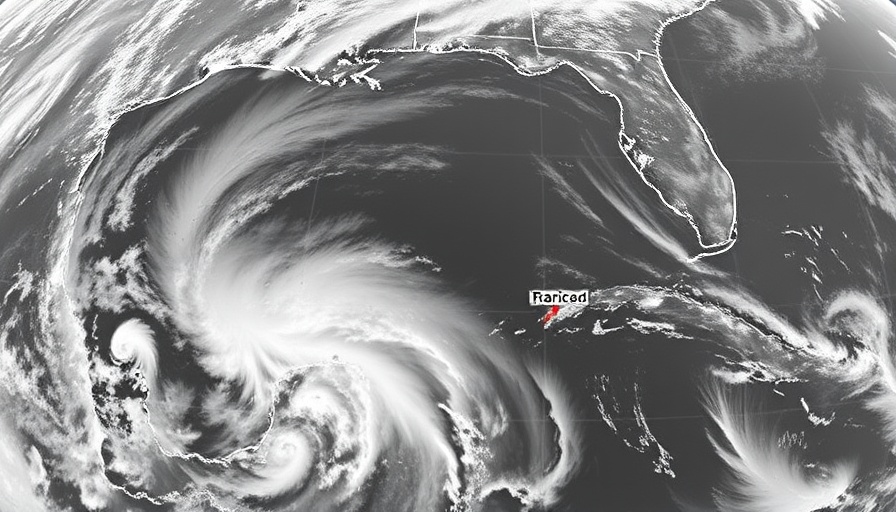
A New Chapter in U.S.-Iran Relations
On June 21, 2025, the U.S. military executed targeted airstrikes on three Iranian nuclear sites, marking a significant escalation in tensions between the United States and Iran. This military action, announced by former President Donald Trump, aligns the U.S. with Israel in a strategic initiative aimed at dismantling what leaders deem as a dangerous threat to global security. As politicians from Florida quickly reacted, the diverse range of responses underscores the complexity of opinions surrounding the use of military force in foreign policy.
Reactions from Central Florida Leaders
The reactions from Florida's political figures highlight the polarized sentiments regarding military action against Iran. Congressman Randy Fine, a Republican, expressed unequivocal support for the airstrikes, stating that "Donald Trump has never let us down." His words resonate with constituents who view Trump's decisiveness as a necessary response to Iran's ongoing nuclear ambitions.
On the other hand, Rep. Maxwell Frost, a Democrat, vehemently opposed the strikes, calling for Congress to reconvene to prevent what he perceives as a push towards war. His statement reflects concerns about escalating violence in the Middle East, where regional stability hangs in the balance. Frost's call for peace amid such military action captures the tension between the desire for national security and the global implications of military intervention.
The Complexity of War and Peace
As Florida's political landscape showcases stark contrasts, the situation poses critical questions about U.S. foreign policy. Senator Rick Scott commended the action as necessary for peace, stating, "This is what peace through strength looks like." This perspective aligns with a traditional view of military force as a legitimate tool for achieving peace. However, as noted by Rep. Anna Eskamani, whose Iranian heritage provides a personal lens on the matter, the American public has not received adequate justification for the strikes. Eskamani suggests that military actions could spiral into a larger conflict without transparent communication from leaders.
The Historical Context of U.S.-Iran Relations
Understanding the current geopolitical landscape requires a look back at the long and turbulent history between the U.S. and Iran. From the 1953 coup that reinstated the Shah to the 1979 Iranian Revolution, American engagement in Iranian affairs has often been contentious. These historical events lay the groundwork for current tensions and the Iranian perspective on U.S. military actions, fueling animosity and mistrust that complicate diplomatic efforts.
What Lies Ahead: Predictions and Trends
Looking forward, the implications of these airstrikes could be profound. Experts caution that such military interventions could provoke Iranian retaliation, escalating into a broader regional conflict. As political discourse intensifies domestically, international responses will also shape the future of U.S.-Iran relations. The challenge for policymakers will be balancing the imperatives of national security with diplomatic efforts to prevent further escalation.
Understanding Public Sentiment
The divergent reactions from Florida officials highlight a broader American sentiment. Some embrace a hardline approach to deter perceived threats, while others advocate for diplomatic resolution. This tension reflects public anxiety about military conflicts that frequently involve U.S. interests overseas. It is crucial for citizens to engage with these discussions, as the outcomes could have lasting impacts not only on American lives but on the global stage.
Taking Action Amidst Uncertainty
In this climate of uncertainty, readers are reminded of the importance of being informed citizens. Engaging in civic discourse, reaching out to local representatives, and advocating for transparency in government actions can empower individuals to influence policy decisions. Understanding the dynamics of international relations helps us navigate these complex issues, ensuring that our voices are heard amid the cacophony of political debate.
Conclusion: A Reflective Pause
As we digest the implications of the recent U.S. airstrikes on Iranian nuclear sites, it is essential to recognize that the urgency of foreign policy rests upon thoughtful consideration and public discourse. By fostering a culture of informed dialogue, we can better advocate for policies that reflect our collective desire for peace, security, and justice.
 Add Row
Add Row  Add
Add 



Write A Comment